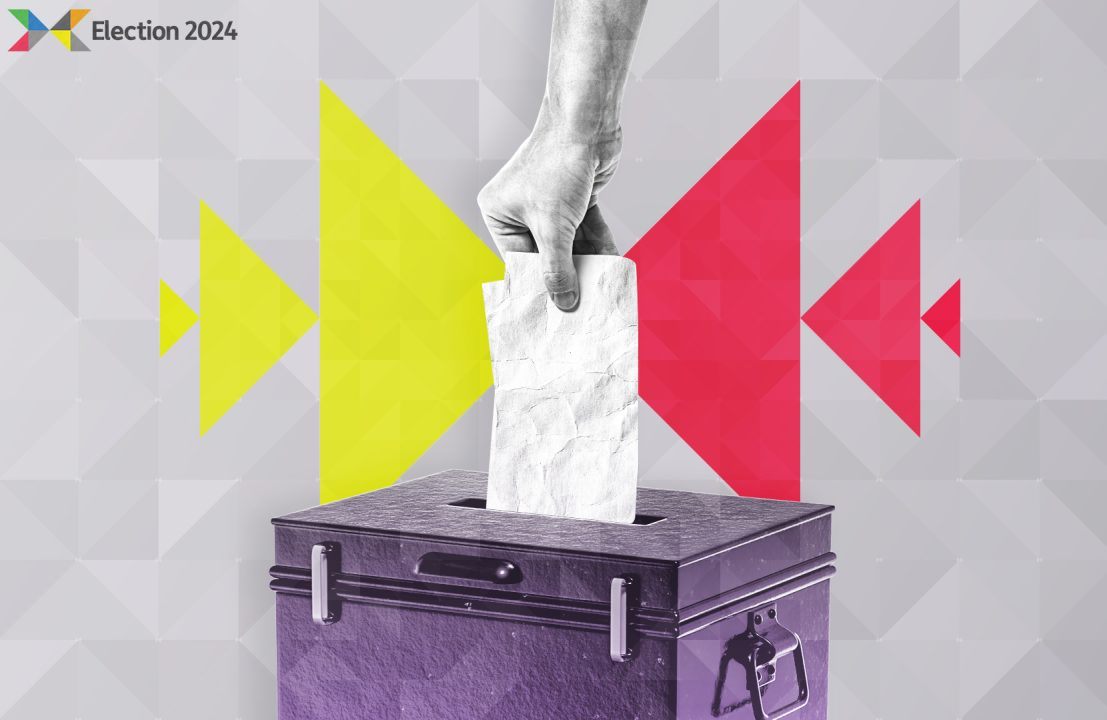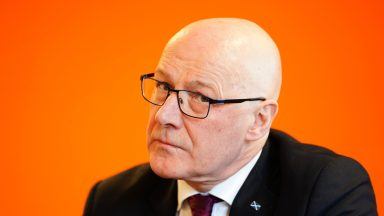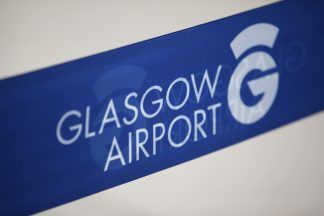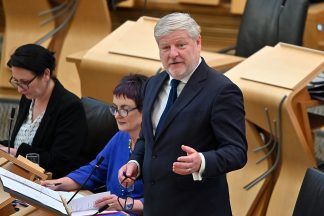The SNP has lost its lead over Labour, with the two parties now neck-and-neck in Scotland on UK General Election voting intentions.
Ipsos’ Scottish Political Monitor, run in partnership with STV News, found both parties are on 36% with the Scottish public.
It’s the first poll in the series to be released since Prime Minister Rishi Sunak called the General Election for July 4.
The Scottish Tories remain in third place with 13% of respondents saying they will vote for the party. Meanwhile 5% said they would vote for the Scottish Liberal Democrats, 4% for Reform UK and 3% for the Scottish Greens.
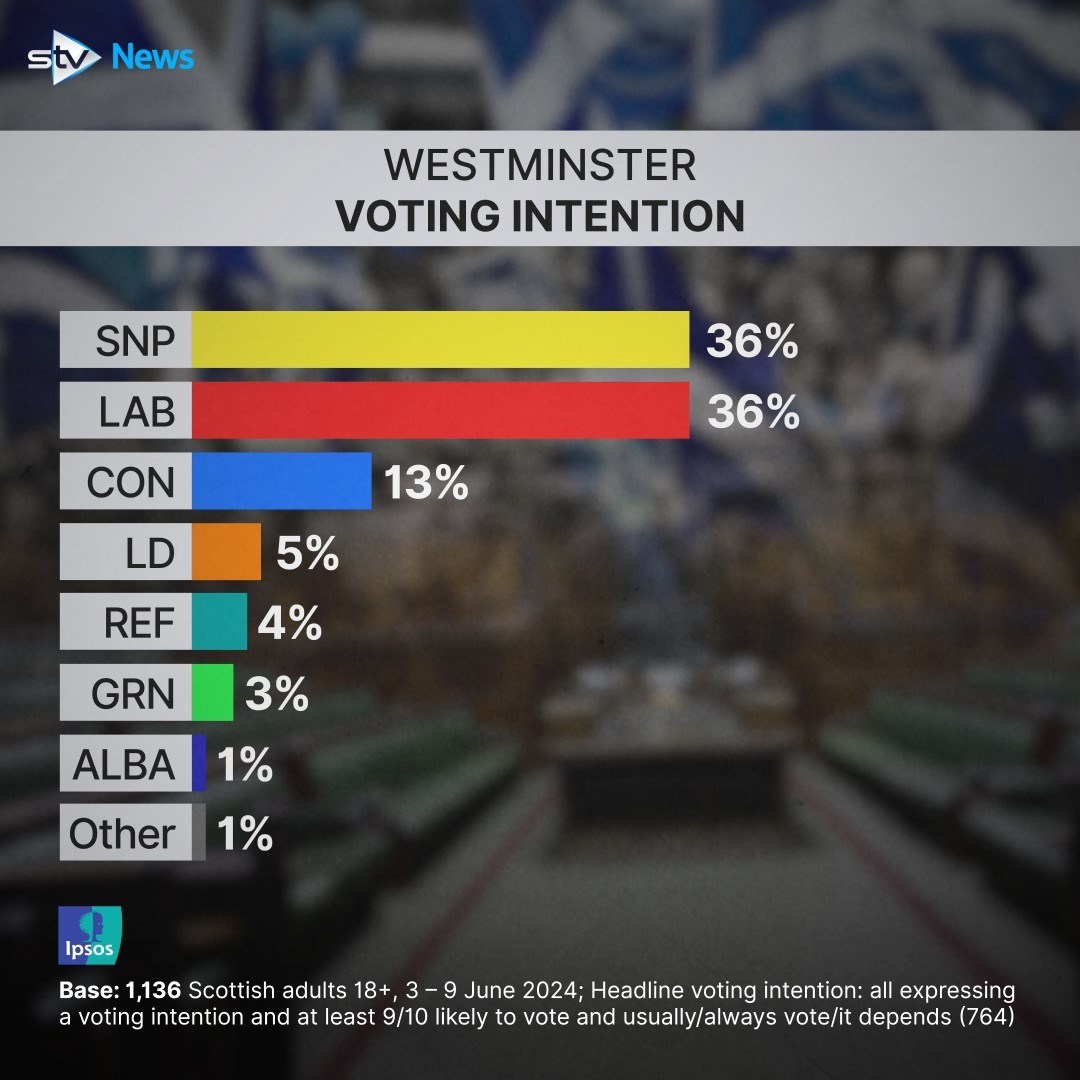 STV News
STV NewsIpsos surveyed 1,150 people in Scotland aged 16 and above between June 3 and 9 – before Douglas Ross announced he would step down as the Scottish Tory leader.
Many voters yet to make up their mind
A majority of respondents (55%) said they have definitely decided which party to vote for while 42% said they could still change their minds.
Among this group, 24% said they may switch to Labour while 12% said they could go to the SNP.
Of those asked, 11% said they would be willing to vote for the Scottish Liberal Democrats, while 9% said they might go for the Tories and 8% are considering the Scottish Greens.
Tactical voting is also on the rise, according to the survey, with nearly a quarter (23%) saying they would vote for a party to stop another winning, rather than because it is the party they most prefer.
The numbers represent a ten-point increase in likely tactical voting compared with Ipsos’ poll in the run-up to the 2019 general election, when just 13% said they were voting to keep another party out.
The likelihood of tactical voting is higher among those who intend to vote Labour (34%) and Conservative (27%) than among those who intend to vote SNP (11%).
 STV News
STV NewsEmily Gray, managing director of Ipsos in Scotland, said: “This election campaign in Scotland is about the persuadable, with 42% of likely voters saying they may change their mind by polling day.
“Although it currently looks a very close race between the SNP and Labour, there are signs that Labour may be in a stronger position than the SNP to win further voters over during the campaign.
“Of those who may change their minds, Labour is likely to be the main beneficiary, with 24% of this group
saying they may switch to Labour, compared with 12% for the SNP.
“The Conservative vote looks soft, with 55% of those intending to vote Conservative saying they may
change their mind – and those voters would be most likely to switch to Labour.
“Given the profile of marginal seats in Scotland, even small changes in vote share (and remember that polls have a margin of error too) can make a big difference to the final result – which means the parties still have a huge amount to play for in the remaining weeks of the campaign.”
What matters most to voters?
The NHS ranked as the number one issue for voters at the General Election with a third saying healthcare will be a very important factor in deciding how to cast their ballot.
The economy came in second, with 18% of respondents listing it as a key issue while Scottish independence was third at 17%.
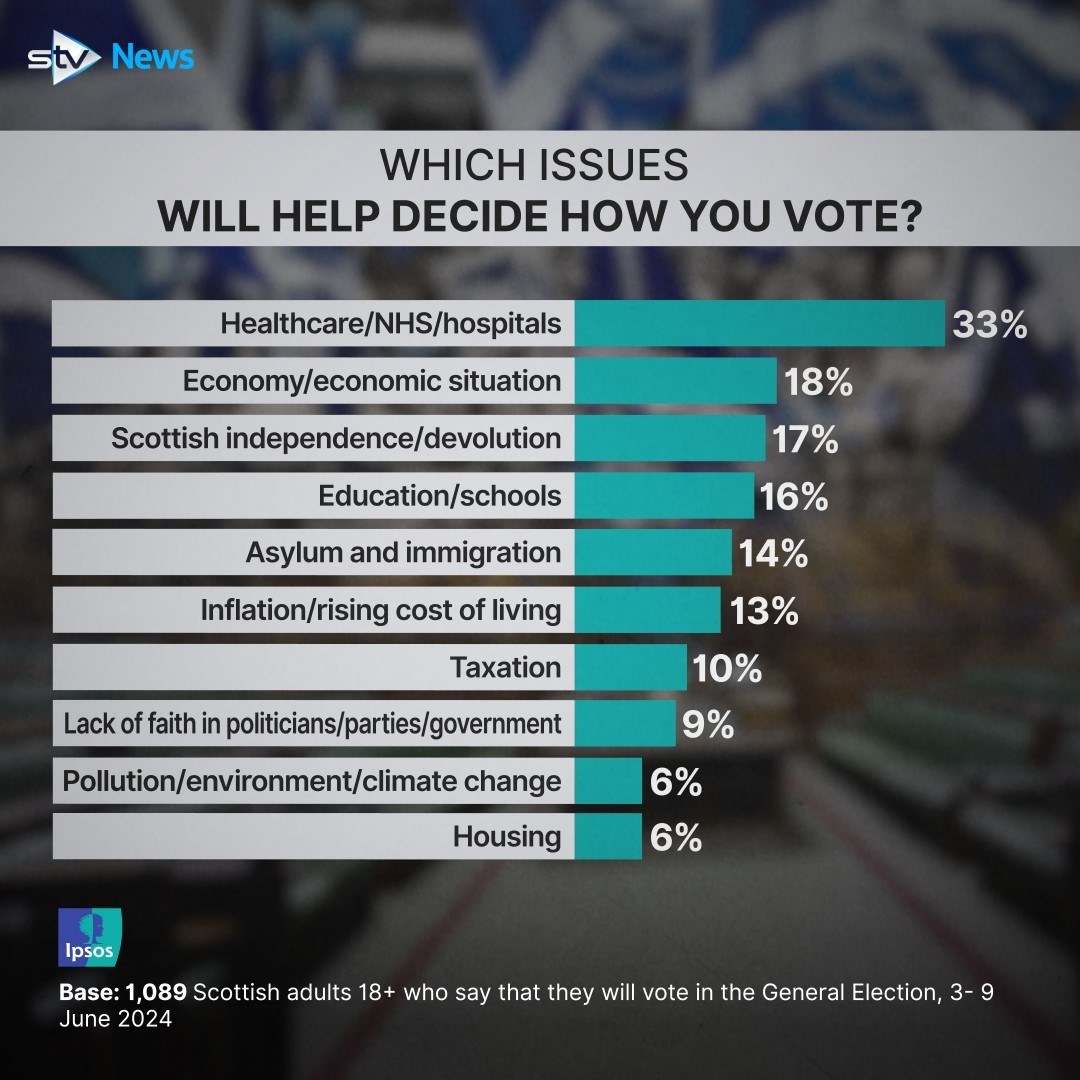 STV News
STV NewsIndependence
The Yes side of the Scottish independence debate retains a small lead in Ipsos’ poll but is down two percentage points since the last survey in January.
Among those likely to vote either Yes or No in a referendum, 51% say they would vote Yes and 49% say they would vote No.

Trust in parties and their leaders
Every party leader received a negative score with Rishi Sunak proving the most unpopular with a net approval rating of -64. Keir Starmer’s approval rating was -12.
Anas Sarwar edged out John Swinney as the most popular Scottish leader with a satisfaction rating of -1 while the First Minister landed a rating of -2.
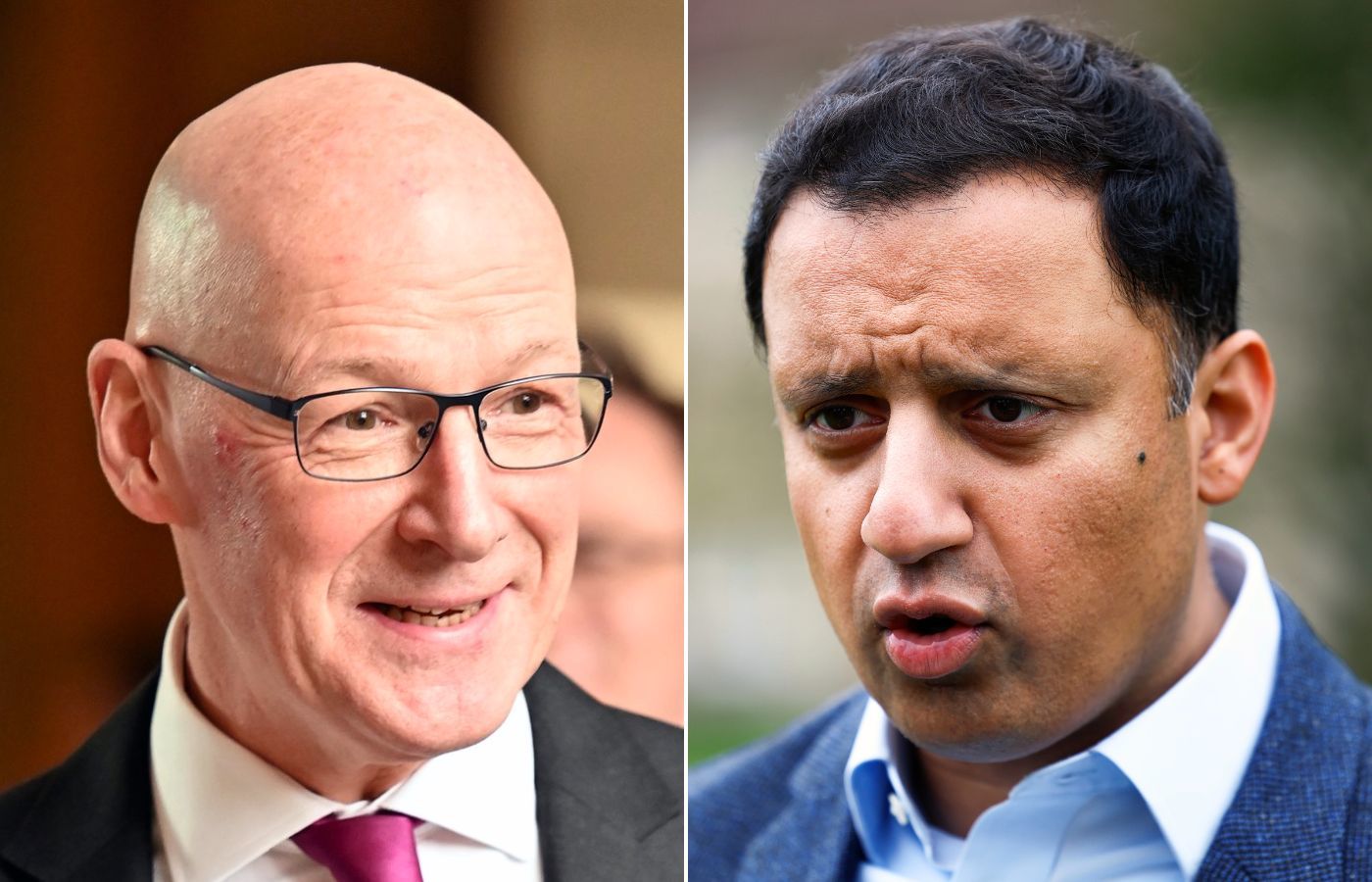 Getty Images
Getty ImagesRoss, the leader of the Scottish Conservatives, had a net negative rating of -29, although the poll was carried out before he announced his intention to resign.
Kate Forbes was the only politician to have a positive rating of +7.
Who would make the best prime minister and first minister?
Asked who would make the most capable prime minister, 53% of respondents said Starmer while only 16% said Sunak.
When asked who would be the most capable first minister, 36% said Swinney, 23% said Sarwar and 14% said Ross.
Follow STV News on WhatsApp
Scan the QR code on your mobile device for all the latest news from around the country


